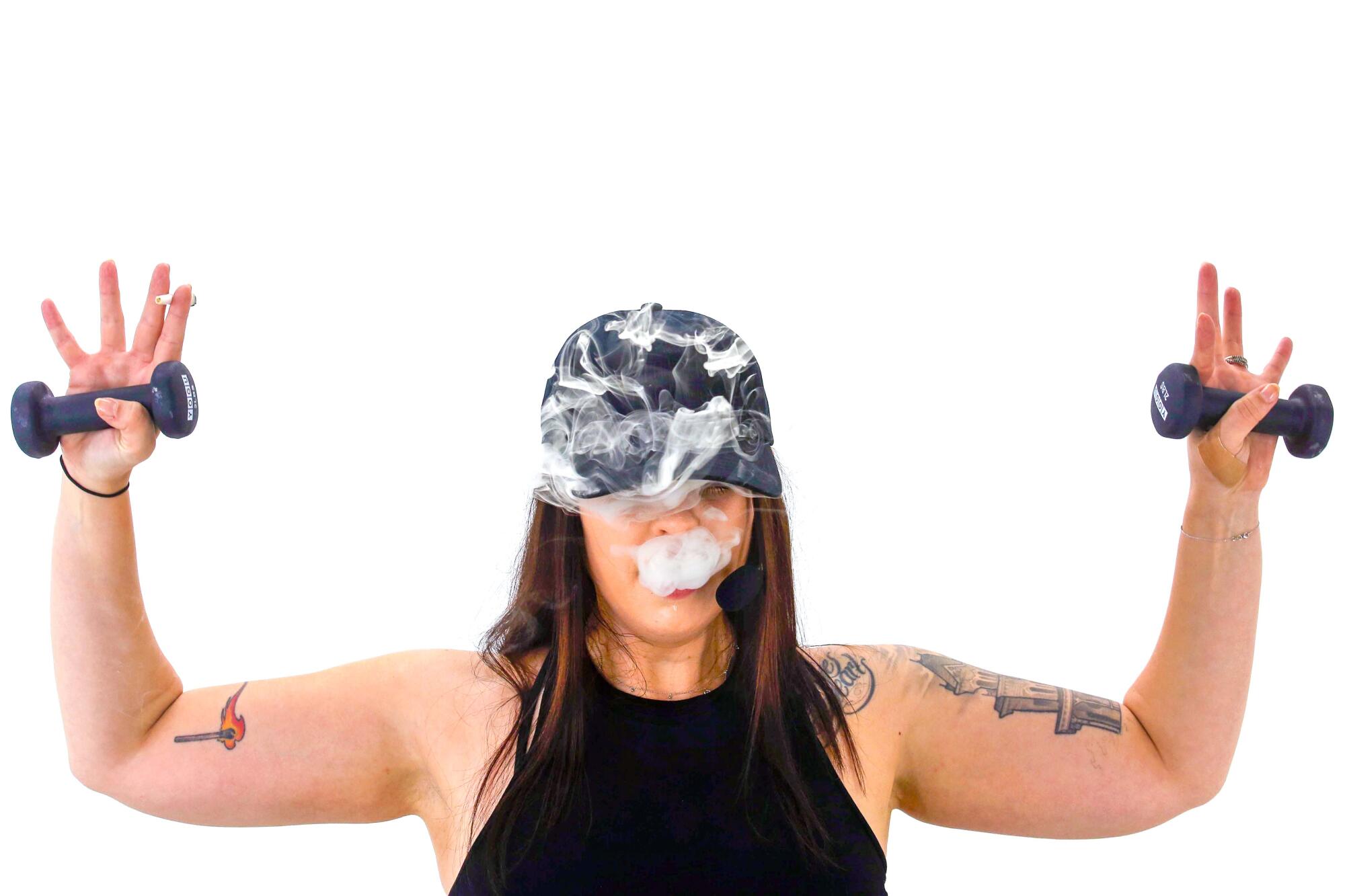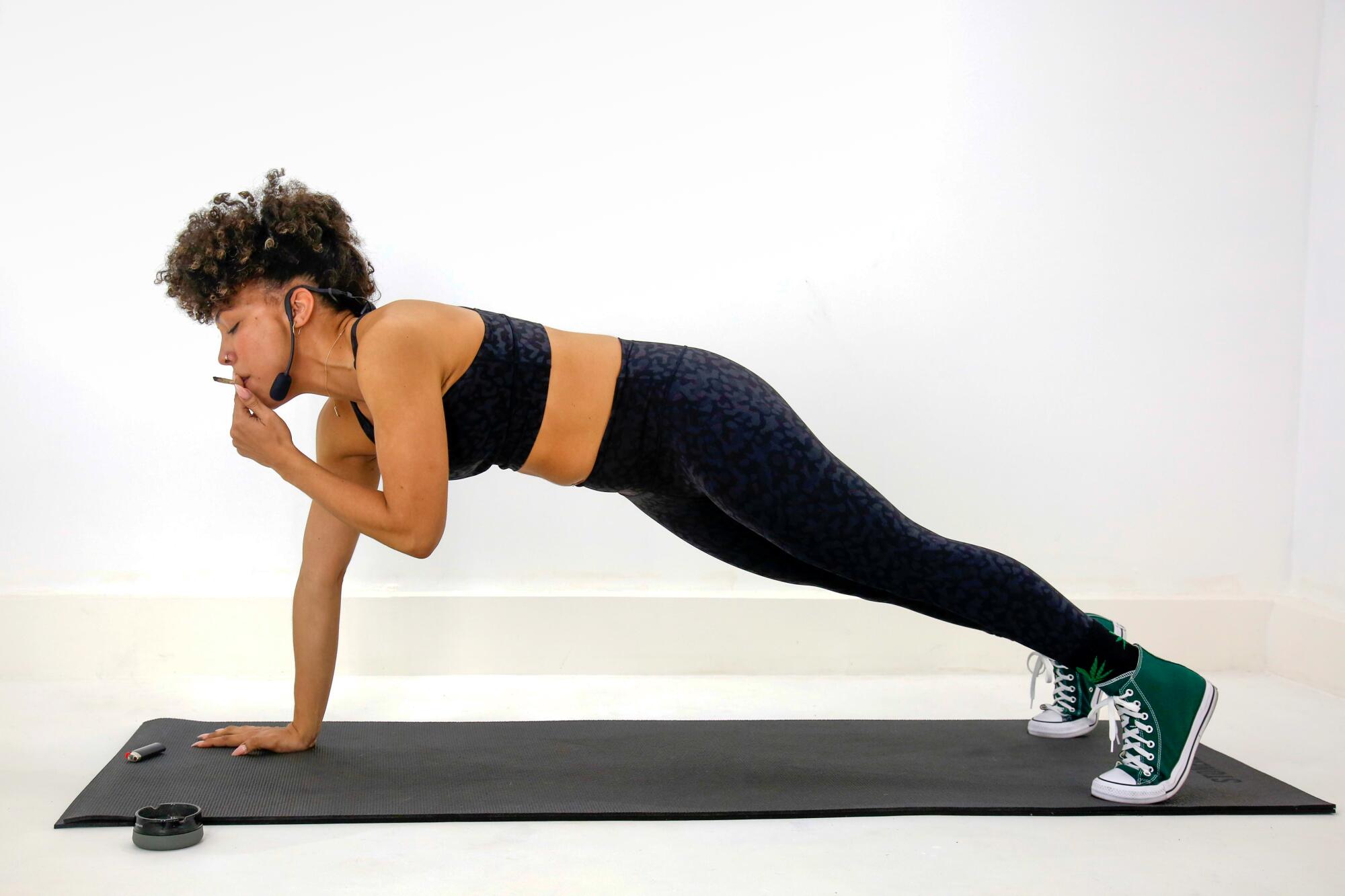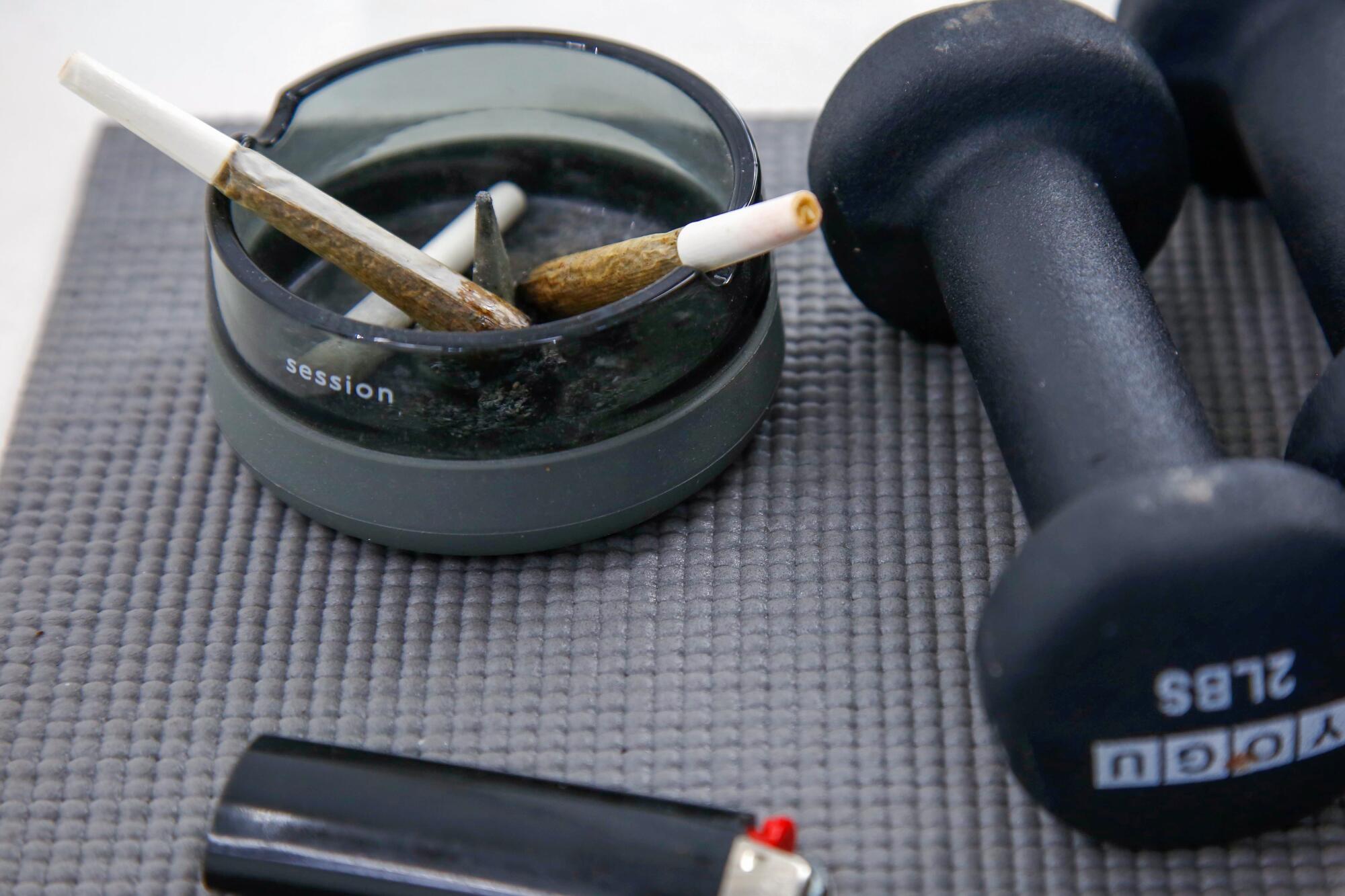
Morgan English was sitting on the fire escape in her Portland State University apartment, smoking weed, when she felt a pull toward a stationary bicycle.
So she walked across the street to the gym. For the first time in her life, she said, exercise didn’t feel like punishment.

“It wasn’t about ‘How many miles can I bike? How much resistance can I put on? Can I do this for an hour?’ It was just joyful. Like I was just moving my body and I was doing it for myself … and it truly unlocked a whole new world for me.”
After that, English started clandestinely smoking weed in her car before exercise classes, certain her classmates could smell it on her. She wondered if anyone else did the same thing.
Turns out, they do.
“You have this sense of like, ‘I’m not alone and other people are doing this,’” English said.
Now, English owns and teaches classes for Stoned+Toned, a fitness company that blends cannabis and fitness in pursuit of community and a more pleasurable workout.
Increased consumer demand means more chemical-free cannabis options, but finding them isn’t as easy as looking for “organic” on the label.
The Los Angeles-based company is among those betting big on the legal cannabis boom bringing fitness along. San Francisco is home to a “cannabis gym” that encourages visitors to light up and lift. A “Pelostoned” Facebook group has thousands of members who smoke cannabis and ride their stationary bikes.
“This is a huge market and I think it’s something that again is changing the conversation around fitness, which really needs to be done,” said English, who founded Stoned+Toned with her husband in 2019.
Researchers are taking note of the trend too.
A 2021 study by the University of Miami and Brookings Institute tested the myth of the “lazy stoner” and found cannabis either had no significant impact or, in some cases, positive impact on exercise.

Michael French, chair of the health management and policy department at the University of Miami’s business school and author of the study, remembered talking to some of his friends about the findings. The friends, all marathon runners, said they use cannabis to recover after long-distance training.
“So they kind of chuckled and said, ‘No surprise there,’” French said.
Researchers from the University of Colorado Boulder are looking into the same thing. Angela Bryan, a professor of psychology and neuroscience there, said her assumption was that cannabis would decrease one’s motivation to work out, but she’s been surprised by findings that tell a more complex story.
“While I’m not ready to conclusively recommend that people start using weed to increase their physical activity, I think it’s pretty clear that it doesn’t hurt,” said Bryan, whose lab has been focused recently on the public health implications of cannabis legalization.
Bryan noted her research hasn’t shown an improvement in performance; instead, cannabis users have reported more pleasure — maybe even a runner’s high — after blending cardio and cannabis.
Whether people come to cannabis or exercise first, though, is still unknown, Bryan said.
Where are the social equity marijuana dispensaries in Los Angeles? Check out our list of weed shops built on social justice and community vibes.
“I suspect it’s the former. It’s people who are exercisers, who live in a place where cannabis is legal. And so they decide to try it in conjunction with their physical activity,” she said.
That push toward blending joy and exercise is a driving force behind English’s work, she said.
Prerecorded classes, which range from yoga to Pilates to cycling, begin with an introduction: what the instructor is smoking, and why. English recommends consuming on the exercise mat — it’s harder to be tempted by Netflix if you’re already dressed and ready to go.
Instructors then take a hit of weed — hand-selected strains sold in local dispensaries paired with each class — and smoke on and off throughout the warmup. (English leaves it up to participants to decide how they want to ingest the cannabis but advises against edibles because of the lag time.)
“You don’t need a whole joint,” English said. “Like, you’ll be very surprised, one or two hits will get you there. And then again, halfway through we’ll remind you like, ‘How are you feeling? Check in with yourself. How’s your high? Do you need another hit? Grab that joint, grab your bong. Whatever it is near you, take another hit, find child’s pose and then we’re coming back into it.’”

The exercise, she said, isn’t mandatory.
“If you want to lay on your mat or go grab a slice of pizza, you can do that and none of us are going to judge you at all,” she said.
She has seven instructors, including herself, but some are new to the cannabis-workout space. English is in the process of planning in-person workouts.
Bree Deanine teaches high-intensity and spin classes for Stoned+Toned, and said she’d never even considered putting together cannabis and exercise. But cannabis helps increase her motivation to work out, she said.
“People are like, ‘You’re absolutely insane, I don’t know how you could inhale smoke and get on a bike and do this cardiovascular-intense workout,’ but it helps you connect with the music a lot more and disconnect with the pain and discomfort with the body,” Deanine said.
During the Secret Supper Club dinner in Santa Monica, we were somewhere around the lamb-neck flatbread when the drugs began to take hold.
Hilary Clark, who takes the online classes, learned about Stoned+Toned through Instagram. They had smoked weed and went to regular exercise classes, but like Deanine, never considered combining the two.
“When I used cannabis in my workouts, I would find less inhibition to try something that looked really hard,” Clark said. “There are some instructors that do a lot of squatting and a lot of leg-heavy movement, and without cannabis I might approach it like, ‘That’s too hard, I can’t do that.’”
That’s exactly English’s goal: removing the hurdles to exercise, and strengthening the mind-body connection.
“And part of that is with cannabis and letting those blocks that you have up for yourself down, letting your anxiety down,” English said. “And so I really do see this not just as a trend but something that’s really going to change the conversation and stick around.”














